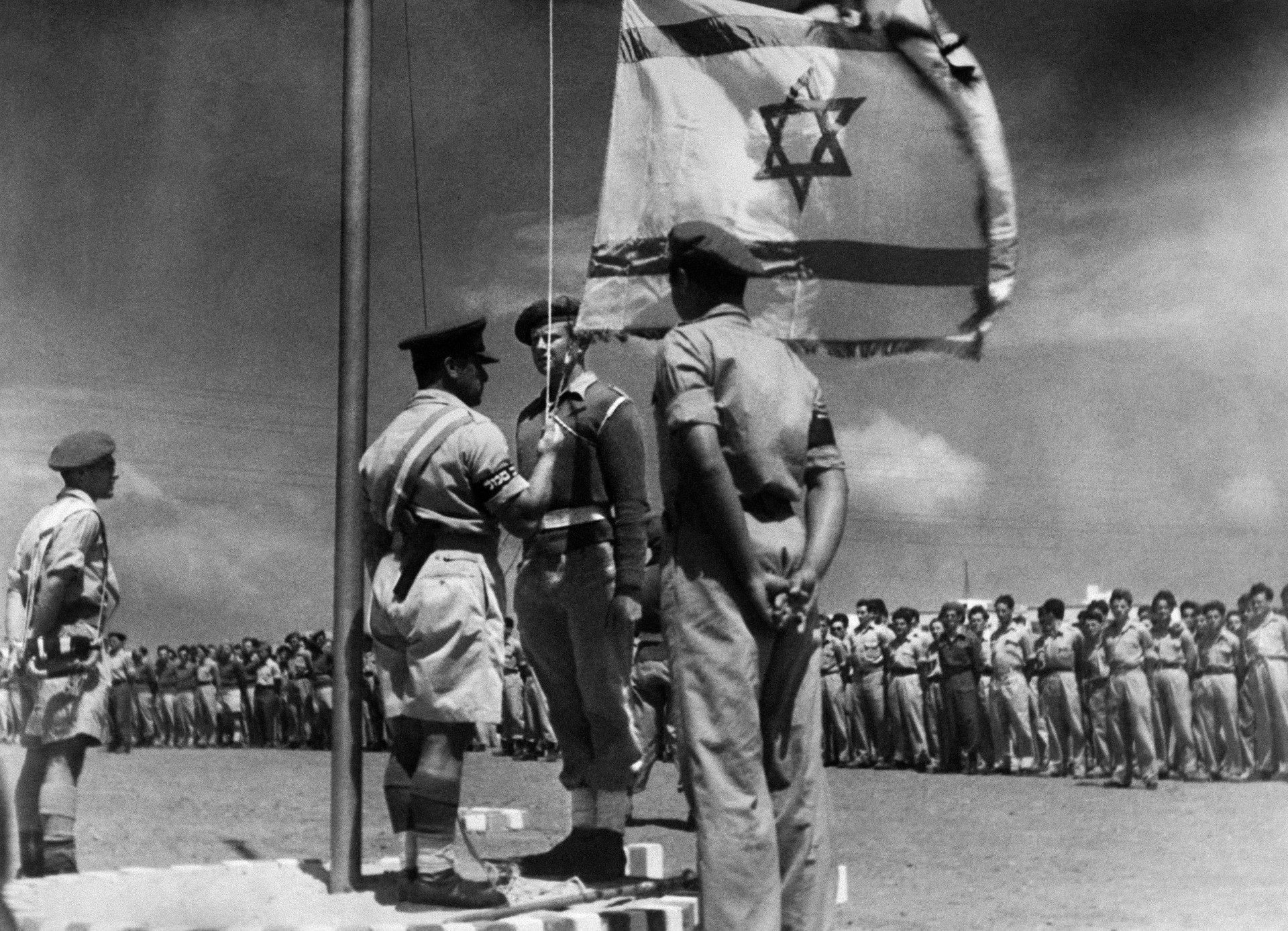Analyzing Trump's Middle East Tour: Impact On Arab-Israeli Relations

Table of Contents
Trump's Policy Announcements and Their Reception
The tour was punctuated by significant policy announcements that profoundly impacted Arab-Israeli relations. These declarations, while aiming for a resolution, stirred considerable controversy and shaped the narrative for years to come.
The "Deal of the Century" and its Implications
The proposed "Deal of the Century," a plan for a two-state solution to the Israeli-Palestinian conflict, was arguably the most anticipated and controversial element of Trump's Middle East policy.
- Key Proposals: The plan reportedly included provisions for a Palestinian state with limited sovereignty, territorial concessions, and economic incentives. Specific details remained elusive, leading to increased speculation and mistrust.
- Reactions: The Palestinian Authority vehemently rejected the plan, viewing it as heavily biased in favor of Israel. The Arab League expressed deep reservations, while Israel, while largely supportive, had its own internal disagreements about specific aspects.
- Concessions and Compromises: The plan involved significant concessions from both sides, but the perceived imbalance in these concessions fueled widespread discontent. Palestinian concerns about their state's viability and control over key territories were central to their rejection.
Recognition of Jerusalem as Israel's Capital
Trump's controversial decision to recognize Jerusalem as Israel's capital and move the US embassy there ignited widespread protests and condemnation across the Arab world.
- Immediate Consequences: The move was seen as a violation of international consensus and a significant blow to the peace process. Violent protests erupted in several regions, exacerbating tensions.
- International Reaction: The international community largely criticized the decision, emphasizing the need for a negotiated solution to the status of Jerusalem. Many countries reaffirmed their commitment to a two-state solution with East Jerusalem as the capital of Palestine.
- Impact on Trust: The decision severely damaged trust between the US and the Arab world, particularly with the Palestinians, who viewed it as a betrayal of their aspirations for statehood. It also strained relationships with many international actors.
Meetings with Key Leaders and Bilateral Agreements
Trump's tour involved high-profile meetings with leaders from various Arab nations and Israel, generating both hope and apprehension about potential shifts in regional dynamics.
Discussions with Saudi Arabia, Egypt, and Other Arab States
During his meetings with Saudi Arabia, Egypt, and other Arab states, Trump sought to build alliances and foster cooperation against common threats, particularly Iran.
- Agreements and Outcomes: While no major formal agreements were immediately announced, the meetings were framed as an attempt to strengthen relationships and present a united front against terrorism and Iranian influence.
- Shifts in Relationships: The meetings did not significantly alter existing relationships, however, they underscored the importance of the US as a key player in the region and a partner in the fight against extremist ideologies.
- Regional Power Dynamics: The meetings aimed to subtly shift regional power dynamics, reinforcing the existing alliances against Iran and potentially influencing future conflicts.
Negotiations with Israeli Leaders
Trump's discussions with Israeli leaders focused on security, regional stability, and the "Deal of the Century."
- Key Discussion Points: Discussions involved issues such as Israeli settlements in the occupied territories, security cooperation with Arab nations, and the future of the peace process.
- US Stance on Controversial Issues: Trump's administration, while publicly supporting the two-state solution, seemed to downplay concerns about Israeli settlements, which further alienated Palestinians.
- Impact on Israeli-Palestinian Negotiations: The meetings, while setting the stage for further discussions, seemed to further solidify existing divisions and make a peaceful resolution appear even more distant.
Long-Term Effects on Arab-Israeli Relations
Trump's Middle East tour had a lasting impact on Arab-Israeli relations, with both positive and negative consequences that continue to unfold.
Increased or Decreased Tensions?
The tour, while aiming for reconciliation, arguably increased tensions in the short term. The recognition of Jerusalem as Israel's capital was a particularly inflammatory action.
- Positive Outcomes: Some argue the attempt to foster cooperation amongst Arab nations against common threats, such as terrorism and Iran, was a positive development. However, these gains were overshadowed by the negativity surrounding the "Deal of the Century" and the Jerusalem declaration.
- Impact on the Peace Process: The tour significantly hampered any hope of a near-term breakthrough in the Israeli-Palestinian peace process.
- Long-Term Implications for Regional Security: Increased mistrust and instability generated by the tour have made long-term regional security more precarious.
Shifting Alliances and Regional Power Dynamics
While the tour didn't dramatically reshape alliances, it subtly shifted regional power dynamics.
- Shifts in Alliances and Power Dynamics: The increased focus on confronting Iran solidified existing alliances but did little to resolve underlying tensions between Israel and the Arab world.
- Long-Term Effects: The long-term implications of these subtly shifted power dynamics are uncertain and could lead to both cooperation and conflict depending on the future political landscapes in the region.
- Newly Formed or Strengthened Relationships: The tour didn't result in significant new alliances but did strengthen existing cooperative agreements, largely focusing on countering common regional threats.
Conclusion
Trump's Middle East tour profoundly impacted Arab-Israeli relations. While the "Deal of the Century" and the recognition of Jerusalem were intended to advance a peaceful resolution, they instead exacerbated tensions and diminished trust between parties. The tour did, however, succeed in somewhat strengthening cooperation amongst certain Arab nations against shared threats. The complexity of the situation underscores the challenges in achieving lasting peace in the region. The long-term consequences of Trump's actions are still unfolding, impacting regional security and the prospects for peace. Continue the conversation: What lasting impact will Trump's Middle East tour have on Arab-Israeli relations? Share your insights and further research on this crucial topic.

Featured Posts
-
 Spring Breakout 2025 Roster Changes And New Additions
May 18, 2025
Spring Breakout 2025 Roster Changes And New Additions
May 18, 2025 -
 Winning Numbers Daily Lotto Wednesday 30 April 2025
May 18, 2025
Winning Numbers Daily Lotto Wednesday 30 April 2025
May 18, 2025 -
 Black Lotus Casino Best Online Casino Welcome Bonus
May 18, 2025
Black Lotus Casino Best Online Casino Welcome Bonus
May 18, 2025 -
 Can Conforto Replicate Hernandezs Success With The Dodgers
May 18, 2025
Can Conforto Replicate Hernandezs Success With The Dodgers
May 18, 2025 -
 East Hampton Police Officer Luis Morales Charged With Dwi Southampton Police Report
May 18, 2025
East Hampton Police Officer Luis Morales Charged With Dwi Southampton Police Report
May 18, 2025
